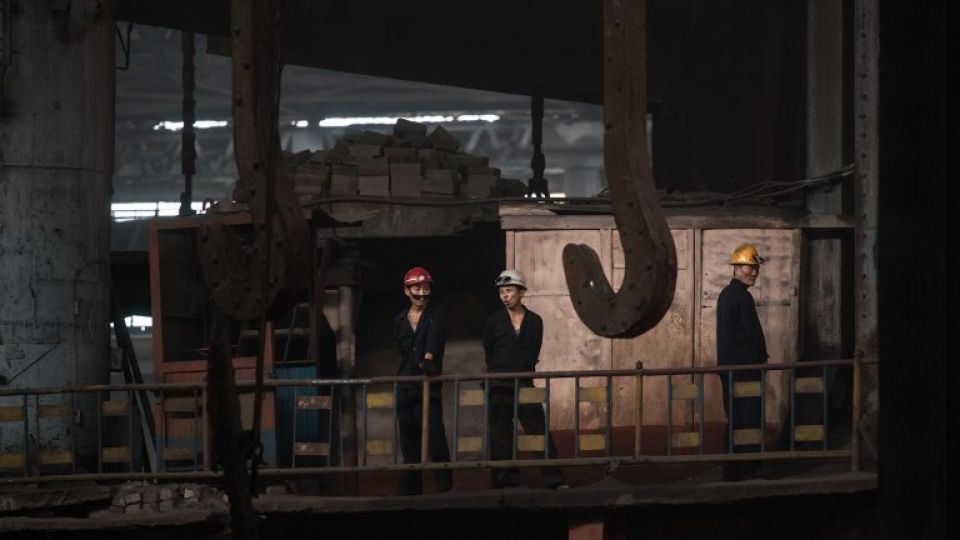November 1, 2018
A ruling by South Korea’s supreme court allowing forced labourers during World War II to seek compensation with a Japanese firm could have lasting repercussions.
South Korea’s top court ruled on Tuesday that labourers forced into service during the second world war by the Japanese could seek compensation. The court ordered Nippon Steel & Sumitomo Metal Corporation to pay 100 million won ($87,700) to the four plaintiffs in the case.
The court disregarded a 1965 treaty normalizing relations between the two countries which Tokyo said nullifies the plaintiffs’ claims.
Protest
The decision was met with criticism from the Japanese government with Foreign Minister Taro Kono asking the South Korean government to remain committed to previous agreements, according to the Yomiuri Shimbun.
In telephone talks with his South Korean counterpart Kang Kyung Wha, Kono pressed the South Korean government to ensure that Japanese nationals and corporations suffer no ill effects from the court’s ruling.
During the talks, Kono reiterated Japan’s position that the issue of compensating former requisitioned workers was “completely and ultimately resolved” under the 1965 agreement on the settlement of problems concerning property and claims and on economic cooperation. He also said Tokyo “viewed the matter as extremely grave because the legal foundation of the two countries has been fundamentally damaged.” Kang responded by saying the Korean government was discussing how to deal with the matter.
Seoul is expected to decide its position after consulting relevant ministries and experts on the issue.
Japan eyes legal action
“We’ll do whatever we can. We’ll show our intention to protect Japanese companies,” a high-ranking Japanese government official said Tuesday after the ruling, according to the Yomiuri Shimbun.
In response to Tuesday’s ruling, the Japanese Foreign Ministry set up an office in its Asian and Oceanian Affairs Bureau to deal with bilateral property and claim issues, and began full-scale preparations for a legal response.
Meanwhile, South Korea’s Foreign Affairs Ministry spokesman Noh Kyu Duk said Tuesday at a press conference: “We, as a government, are considering various possibilities. We must put our heads together to keep the latest judgment from negatively affecting Japan-South Korea relations.”
No great ideas
According to South Korean government sources, Seoul has approached Tokyo in the past through back channels to form a foundation funded by both governments, South Korean firms and defendant Japanese companies to handle compensation payments. This suggestion was rejected by the Japanese government.
If bilateral talks break down, the Japanese government will suggest, based on the agreement, the formation of an arbitration commission including an arbitrator from a third nation.
There is no precedent for forming such a commission. The two countries might not be able to agree on the selection of the third-party arbitrator. If this happened, the Japanese side might file a complaint with the International Court of Justice (ICJ), but even then a trial is likely not to be convened, as South Korea has not accepted the obligation to attend ICJ trials.
One reason why the South Korean government tries to avoid settlement through an arbitration commission or the ICJ is that “losing will spur public finger-pointing, causing tremendous harm to the Moon administration,” a Japan-South Korea diplomatic source said.
Even if an ICJ trial would not be held, the Japanese government is still considering filing a complaint, to show international society that South Korea breached international law.
The Moon administration has taken an ambiguous approach, trying to balance domestic public opinion and the Japan-South Korea relationship. It acted in a similar way regarding a bilateral agreement signed at the end of 2015 over the issue of former comfort women, where the administration did not abolish nor renegotiate the deal but still has not accepted it.
Fourteen similar cases regarding former requisitioned workers are currently pending in South Korea, and the latest court ruling may trigger a flood of orders for Japanese firms to pay compensation. Tokyo plans to urge Seoul to take measures to prevent the latest case from becoming a judicial precedent.


